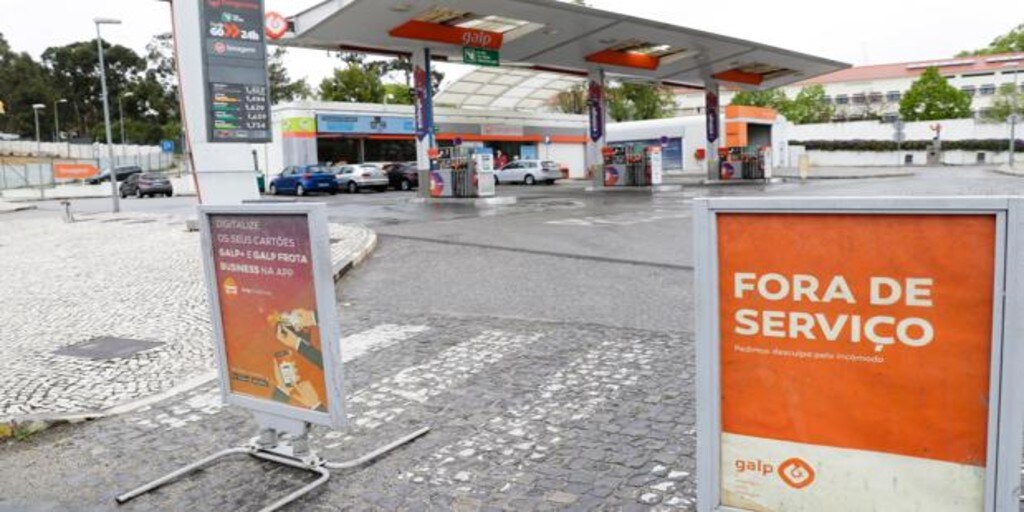The Portuguese pay more expensive gasoline than in Spain due to 57% indirect taxes

Correspondent in Lisbon
Updated:
Keep
The Regulatory Entity for Energy Services of Portugal (ERSE) has prepared a comparative study on fuel prices in the two countries of the Iberian Peninsula... and the result is that months go by without the costs being equalized. On average, the Portuguese
they pay 21 cents for gasoline per liter more expensive than the Spanish.
The explanation is none other than the weight of indirect taxes: while the socialist government of Pedro Sánchez imposes 49%, his counterpart led by Antonio Costa maintains 57%. There is the reason, not linked to the onslaught of the market. On the contrary, these are fixed amounts that are due to the collection effort of the authorities. It is not surprising, therefore, that Portugal occupies the eighth place in the list of countries with the most expensive gasoline in the European Union.
If we take the case of diesel, the price difference goes from 21 to 16 cents per liter, but always with Portuguese citizens as the most affected. The fourth quarter of 2021 has been the focus of analysis, and there it is seen that the neighboring country overwhelms its inhabitants with a disbursement of 1.7 euros per liter of gasoline, when it does not occasionally even exceed two euros to the despair of its citizens. And in Spain? Well, 1.48 euros. Let us then take diesel and it will be possible to verify that 1,520 is the figure that governs Lusitanian soil, for 1,358 from the border towards the interior of Castile and the rest of the regions.
If we remove supervening taxes from the retail price, Portugal has lower costs because the ERSE underlines: "The higher tax burden applied in Lisbon justifies the lower competitiveness in the context of the peninsula." A similar case occurs when talking about diesel: just over one euro less in Lusitanian territory without counting taxes, but 25 cents per liter higher in case of taking into account 52% of its proportion at the end, by 45% in Spain.
The inhabitants of the neighboring country are astonished at this strong increase in indirect taxes that has been installed since the socialist government took office (almost seven years ago and now they have renewed for another legislature, even with an absolute majority), which leads to a day expensive day when it comes to filling the car tank. They look at Spain and it seems to them that people complain without being aware of what terms can be reached.
Are we facing an abuse? Many Portuguese think that this is beyond any doubt and do not understand how Costa's cabinet does not loosen the indirect tax pressure, which ultimately constitutes the biggest thrust for daily life in Portugal.
Another significant fact to add fuel to the fire: the price of gasoline has risen so much in just a few months that the proportion places it at 20 times more than wages throughout the last year. It is something that irritates the Iberian neighbors in the midst of a pandemic, with an economic crisis that can only be described as galloping and not encouraging prospects.
The figures do not admit doubts. On the one hand, the increase in fuel has reached 26%, counting from mid-2020. On the other hand, salary cuts in companies are counted by an average of 9%, although in many cases it is much higher. To make matters worse, these are companies that sometimes apply the reduction drastically even if their profits have only been diminished, but not cut off completely. The point is that the mismatch between what gasoline costs and what a worker receives 30% openan economic scourge without remission.
The president of the Portuguese Business Association, Luis Miguel Ribeiro, has shown a belligerent tone by issuing a serious warning to the socialist prime minister: "In the short and medium term, these prices are going to cost us a setback in exports."
In addition, we have here the breeding ground for 'energy tourism' from Portugal to Spain, which sometimes draws long queues and takes hold by leaps and bounds. It is not that only the cost on the other side of the border rises, but much more… to the point that the psychological barrier of two euros per liter no longer an unattainable ceiling and it has been a palpable reality for the Iberian neighbors for some weeks.
From time to time, the traffic to the border posts of Huelva, Zamora, Galicia, Salamanca or Extremadura swells with Portuguese eager to save a few euros. It is worth filling the tank with more than enough.










